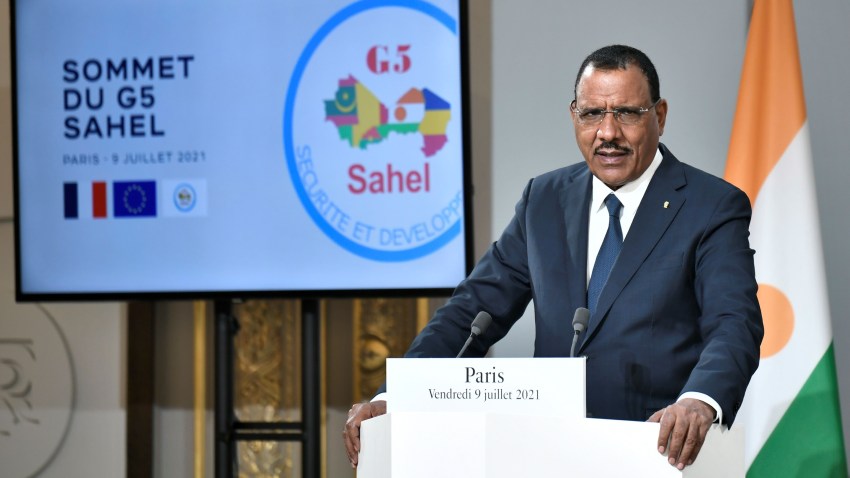On July 26, the news broke that a group of mutinous soldiers attached to Niger’s Presidential Guard had surrounded the presidential palace and detained President Mohamed Bazoum. Following reports of a factional split and wrangling for control within the army amid the apparent coup attempt, a Nigerien military spokesperson announced later that day that Bazoum had been removed from power and the country’s constitution suspended. A junta calling itself the National Council for the Safeguard of the Homeland and headed by Gen. Abdourahmane Tchiani, the commander of the Presidential Guard, announced it had replaced the civilian government. Tchiani subsequently declared himself the new head of state in a televised address two days later.
Bazoum has so far refused to resign, and it’s still possible—though increasingly unlikely—that the coup will be reversed. If it is not, it will mark the fifth successful coup in the West African country since it gained independence from France in 1960 and the sixth military takeover in the region in three years. It occurred against the backdrop of a worsening security landscape in the broader Sahel and at an inflection point in the regional security frameworks created to resolve the decade-long instability. The coup immediately drew widespread international condemnation, including from Niger’s closest international partners like France and the United States, as well as from the United Nations.
The African Union joined the chorus, while leaders from the Economic Community of West African States also condemned Bazoum’s detention and called for his release and reinstatement. In a communique released after an emergency meeting held Sunday in Abuja at the behest of Nigerian President Bola Tinubu, West African leaders announced the imposition of severe economic sanctions on Niger, including the closure of land and air borders and the freezing of commercial and financial transactions between ECOWAS countries and Niger. Crucially, ECOWAS leaders floated the possibility of military force as a last resort to restore constitutional order in Niger in the event Bazoum is not restored to power within a week.

